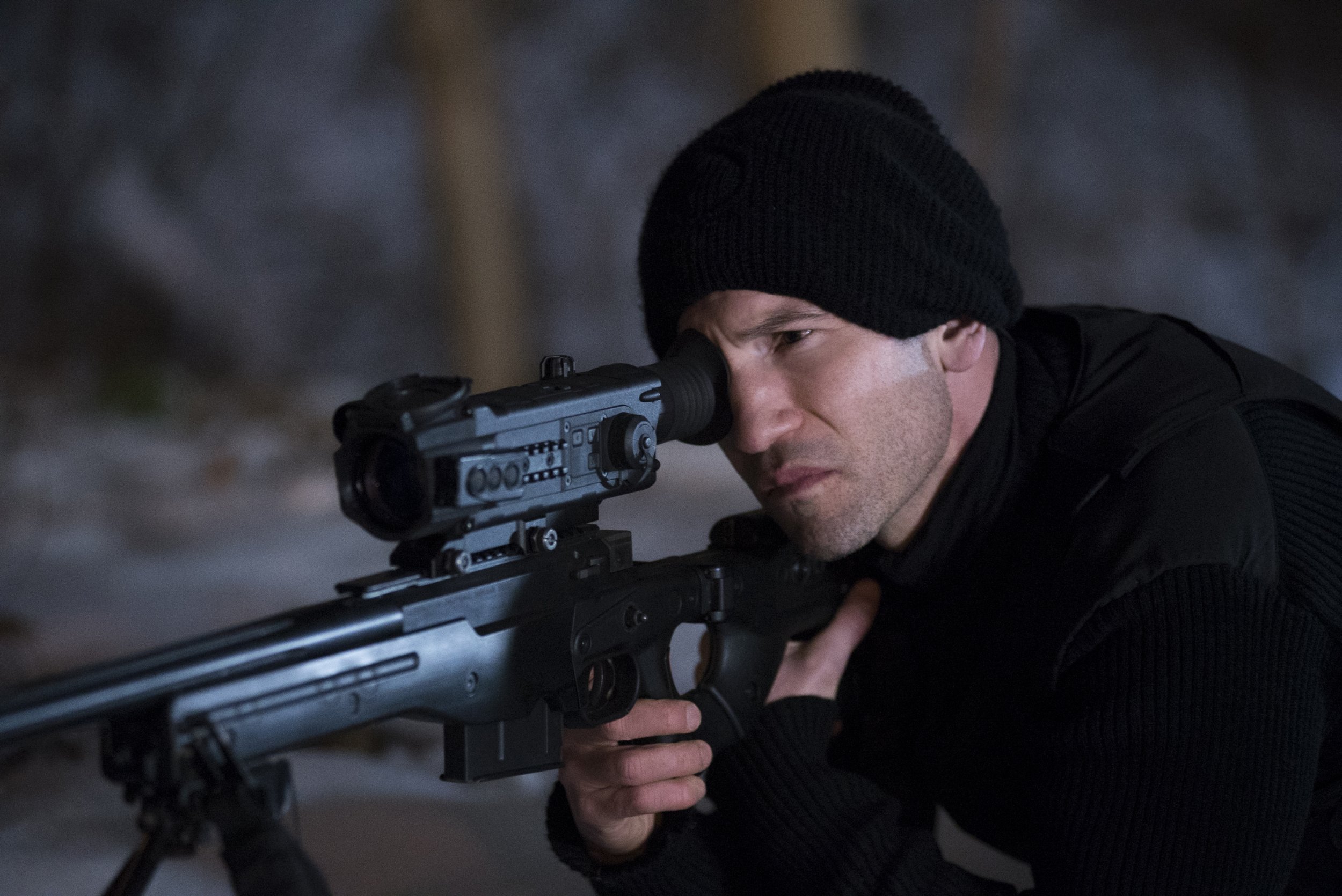
The Punisher, Marvel's gun-toting, ultraviolent antihero, has a well-earned reputation for pumping way, way too many bullets into the dudes he's punishing. But you wouldn't know it from the first episode of the character's new Netflix series. In an interesting twist, the episode is mostly gunless.
In the show's first big fight scene, the vigilante, real name Frank Castle (played by Jon Bernthal), takes down a group of criminals trying to kill his work buddy. But instead of shooting them, he cracks their bones with punches and kicks, smacks their skulls with a sledgehammer and drops their lifeless bodies into wet cement.
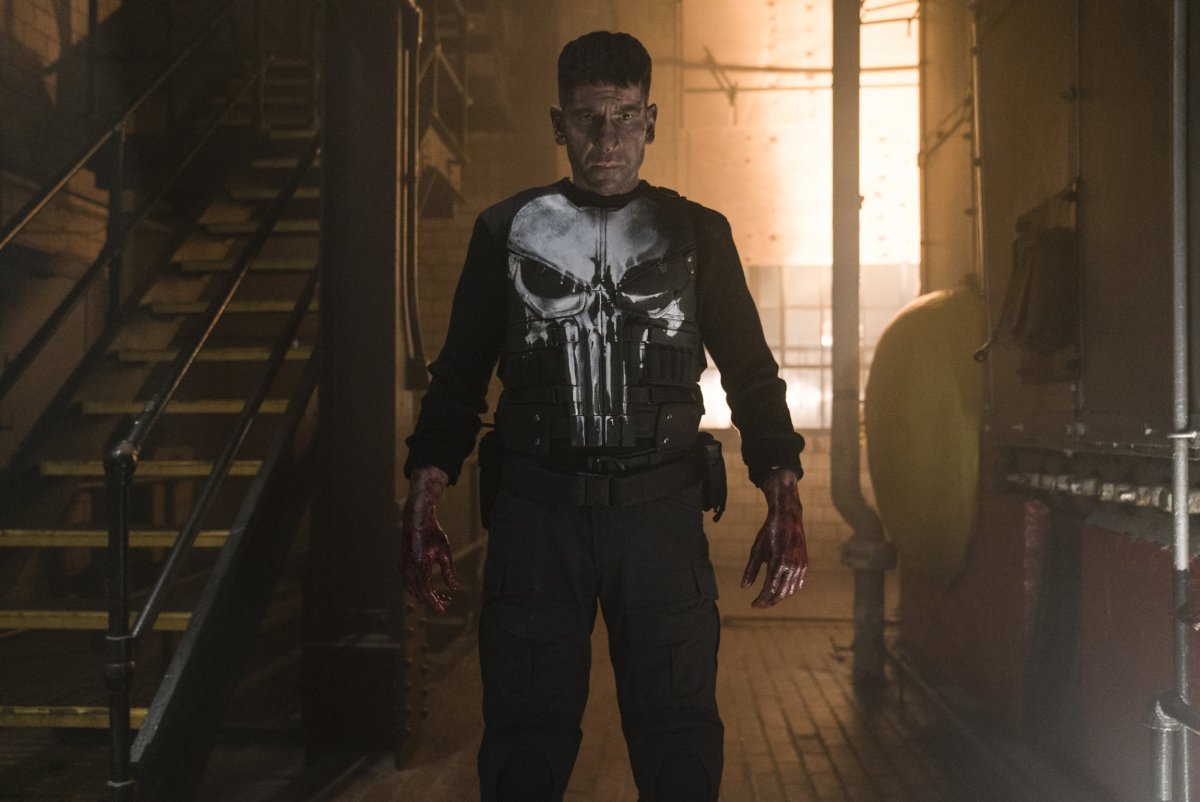
"When we catch up with Punisher, he's still wrapping up the story that launched in Daredevil, and he really believes he's going to be able to put it aside and not be that guy anymore," showrunner Steve Lightfoot told Newsweek. "[But that] scene at the construction site is his nature rearing its head again."
We first met Punisher on Season 2 of Daredevil, a damaged combat veteran ruthlessly exacting vengeance on criminals. When his own series begins, Frank's brutal quest continues as he reassesses the alliances made during Daredevil, including his friendship with Karen Page (Deborah Ann Woll). But he's also haunted by events that took place while he was serving in Kandahar, Iraq.
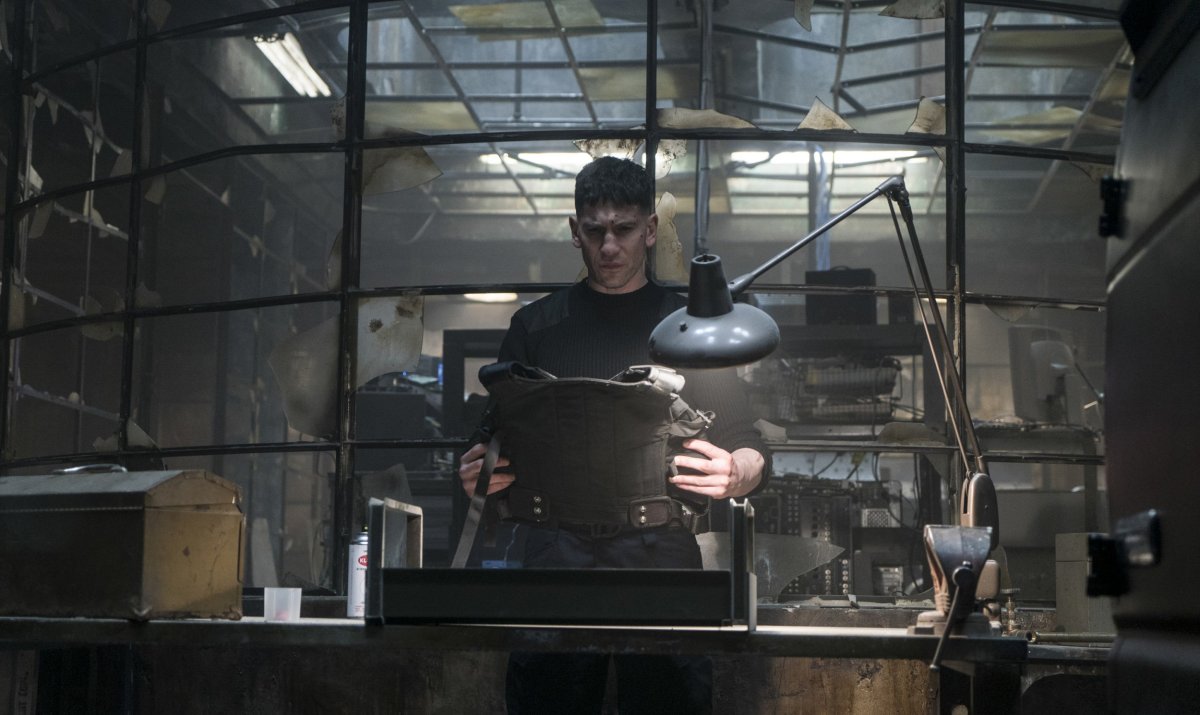
Lightfoot says Frank isn't "an emotionally eloquent guy." His backstory evolves in jumps between his present situation and flashbacks, which reveal disturbing facts about the death of his wife and two children. "In order for the audience to get the full scope of what's going on, we had to give him an interior emotional life cinematically," Lightfoot said. "He's wrestling with guilt, thinking, 'My family is dead and I miss them more than I want to be alive myself. I can track down all the people responsible, but what if I had a part in it? Who am I then?'"
It's an arresting, violent revenge fantasy, though perhaps too close to recent headlines. Punisher's artillery-heavy vigilante is strikingly similar to deadly mass shootings occurring in real time across the country.
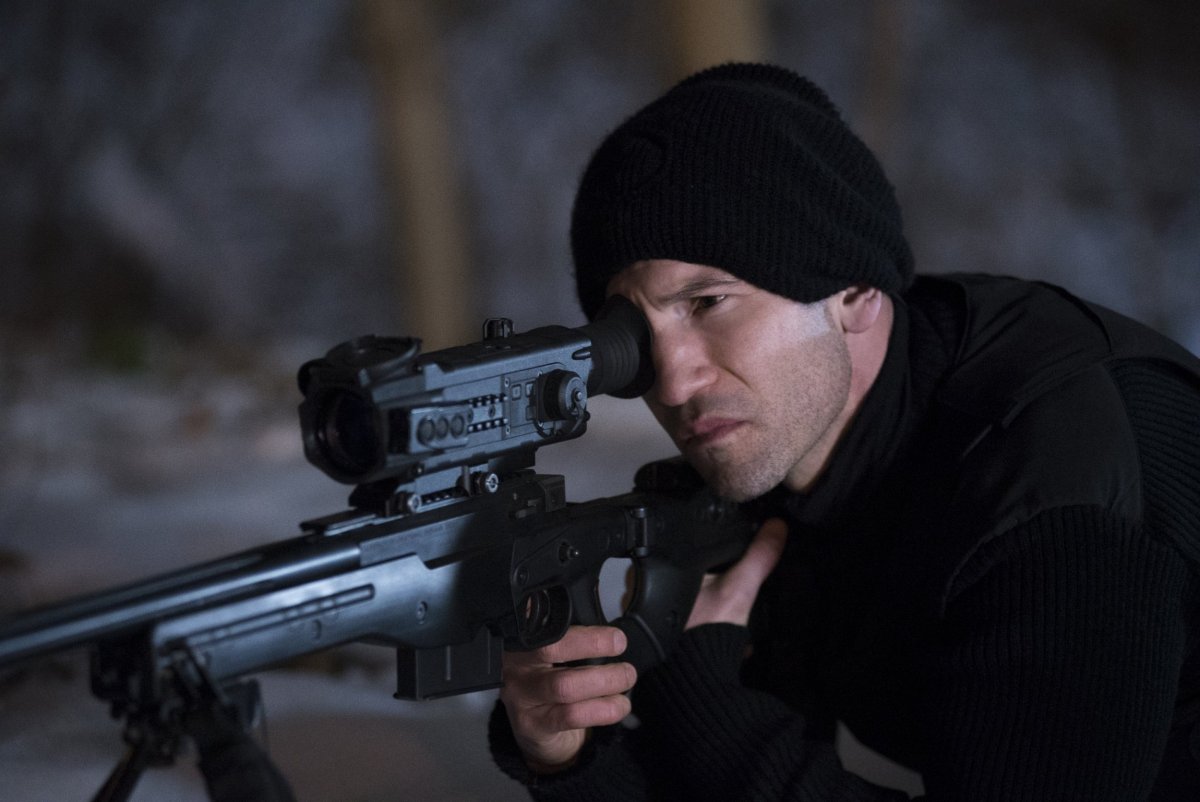
After the shooting in Las Vegas in October, Netflix decided to postpone the show's release. Producer Jeph Loeb told Inverse last month that the series wasn't fundamentally altered by the delay—or the events surrounding it. "The show is not predominantly about gun violence, and in fact it shows you the problems that occur in that world," he said. But the postponement did little to stop critics from asking whether the show should air at all. As mass-casualty events occur more frequently, should we a story that asks us to empathize with a lone gunman, reluctant or not, be glamorized?
"He's not a superhero," Lightfoot said, "and not really a hero at all. You want to root for him because you've seen the pain he's been put in, and because he does try to make things right, but you're not going to be able to sit with every decision he makes. You cannot unequivocally root for the Punisher."
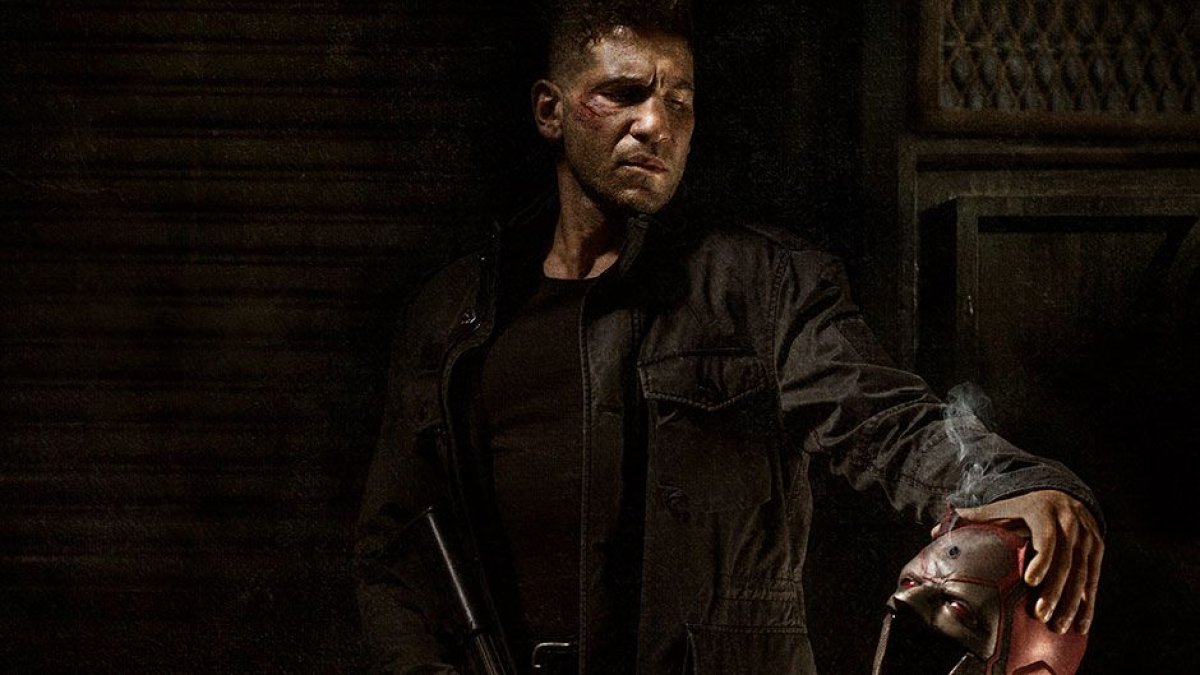
If we're not supposed to ally ourselves with Frank, then why watch the show? Because, said Lightfoot, The Punisher isn't just about vigilantism. It's also a kind of reckoning with the way the country treats its veterans after sending them off to combat. There are multiple scenes of Frank grappling with PTSD, and many of the roles on the show are played by actual veterans.
"All we're saying is that you can't send men into battle for 15 years and expect them to come back and act like nothing ever happened," Lightfoot explained. "I'm obviously not a soldier, so all of this has come from talking to vets and doing research, but I believe there's a shrugging-off of emotion that's encouraged during warfare, and you can't just open those doors again when the war is over."
The discussion about veterans is necessary, but does it mitigate the very real concern that critics have with the show? At its heart is an angry man with way too many guns who has taken the law into his own hands. Damaged as Frank might be, it's still a profile that's far too recognizable in real life.
"I'm not asking viewers to agree with everything Frank does. I want people to empathize with him, just for a moment." Lightfoot said. "We can all identify with grief and how it can make you want to do things you wouldn't have recognized in yourself before a loss."
The dark truth of The Punisher, though, is that Frank Castle actually does those things.
Uncommon Knowledge
Newsweek is committed to challenging conventional wisdom and finding connections in the search for common ground.
Newsweek is committed to challenging conventional wisdom and finding connections in the search for common ground.
About the writer
Emily is a culture and entertainment writer living in Manhattan. Previously, she ran the culture section at Inverse and has been published in The Daily ... Read more
To read how Newsweek uses AI as a newsroom tool, Click here.








